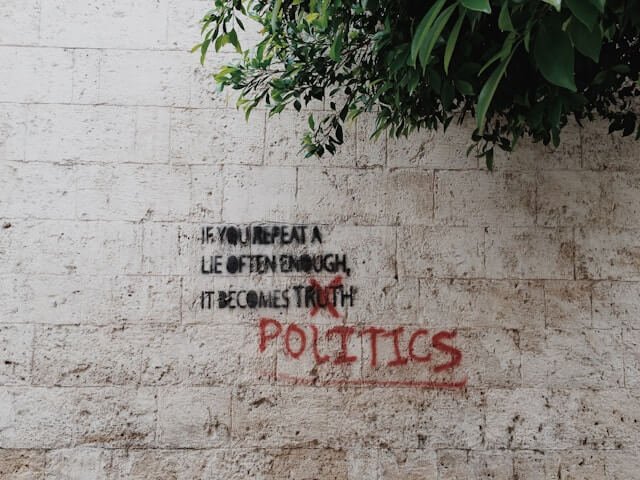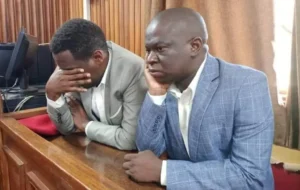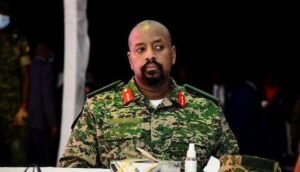Journalist brutality, abductions, amongst other headlines, have been all the news for quite some time in Uganda. But the recent spate of kidnappings, state-linked torture, and transnational repression has started to feel less like scattered incidents and more like symptoms of a deep political disease, and I am sure I am not the only one who would point this out.
Dr. Besigye’s abduction is part of a growing and worrying trend of transnational repression with governments violating human rights beyond their borders. – Tigere Chagutah.
On May 23, 2025, the case of Ugandan journalist and activist Agather Atuhaire made its run after she was reportedly tortured and dumped at the Uganda-Tanzania border. Her crime? Standing in solidarity with Tanzanian opposition figure Tundu Lissu. And she wasn’t alone. Just days later, in a very similar incident, Kenyan activist Boniface Mwangi, arrested alongside her, described being blindfolded, transported to a secret location, and tortured by Tanzanian state agents. These claims echo a familiar theme for Ugandans: state-sponsored brutality has become normalized, even across borders.
A Ugandan human rights activist, arrested in Tanzania after travelling to the country to support an opposition politician at a trial for treason, has been tortured and dumped at the border, according to an NGO. – Aljazeera
But let’s not act like this is breaking news. We’ve been here before. In Uganda, abductions of opposition figures, journalists, and vocal citizens have become a haunting rhythm, one that seems to grow louder as election seasons approach. Eddie Mutwe, Bobi Wine’s lead bodyguard, was recently snatched from the streets of Kampala by men in plain clothes, only to reappear limping and visibly tortured in court. The shocking part? General Muhoozi Kainerugaba, Museveni’s son, casually admitted on X (formerly Twitter) to having him beaten, calling him a “punching bag.”
I’ve located Eddie Mutwe in my basement. He’s enjoying the hospitality. Tell his party to stop spreading false information or maybe they’ll join him for a slumber party.
— Muhoozi Kainerugaba Parody (@mkainerugabaa) May 2, 2025
The government’s explanations, when they come at all, are often full of contradictions. One moment, officials deny knowledge of the kidnappings; the next, they claim the opposition is staging them for sympathy. Just this month, a new law was passed allowing military courts to try civilians, reviving an unconstitutional move heavily criticized by legal experts and human rights defenders.
In a bold and controversial move, Uganda’s Parliament passed a 2025 amendment to the Uganda People’s Defence Forces (UPDF) Act, effectively reinstating the military’s power to try civilians in military courts. This comes just months after the Supreme Court ruled in early 2025 that military trials for civilians were unconstitutional. So, what just happened, and what does it mean for ordinary Ugandans? – Uganda Reinstates Millitary Trials For Civillians Despite Supreme Court Ban, Ssegu.com
Organizations like Amnesty International and the East Africa Law Society warn of a “growing and worrying trend,” not just of repression, but of transnational repression. Activists aren’t even safe outside Uganda. And if you thought the rest of East Africa is just watching, think again, these tactics have been seeping across borders, threatening to redefine civic space across the region.
Countries like Rwanda have faced allegations of silencing critics both at home and abroad, with dissidents reportedly assassinated in exile.
The report also finds that the Rwandan government has sought to use global police cooperation, including Interpol Red Notices, judicial mechanisms, and extradition requests to seek deportations of critics or dissidents back to Rwanda.
In many cases, interviewees’ relatives in Rwanda have themselves been targets of arbitrary detention, torture, suspected assassinations, harassment, and restrictions on movements to exert pressure on their family members abroad to stop their activism. This has effectively reduced many to silence. For example, one interviewee, who said his relative was tortured in a safe house in Rwanda for eight months because of his political activism in exile, told Human Rights Watch: “If you publish my name, they will kill him.” – “Join Us or Die” Rwanda’s Extraterritorial Repression, Human Rights Watch.
In Tanzania, opposition figures like Tundu Lissu have been targeted in politically motivated attacks, while in Kenya, fears of state-sanctioned violence simmer beneath the surface, especially during election periods. In each of these cases, the ripple effects of repression stifle freedom of expression, create a culture of fear, and weaken the democratic foundations of the region.
For Uganda, public reactions have ranged from fear to fury. The National Unity Platform (NUP) claims thousands of its supporters have been abducted or disappeared since the 2021 elections. International observers, including the U.S. Holocaust Memorial Museum, have even hinted at potential mass atrocities in the lead-up to the 2026 elections. This isn’t hyperbole. It’s a red flag.
But here’s the uncomfortable truth: while the world debates whether these actions qualify as authoritarian or not, Ugandans are being silenced, scarred, and scattered. Where’s the line between democracy and dictatorship when fear becomes your daily companion?




